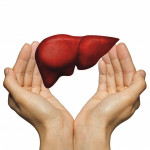Avexa Limited has decided to end its development of apricitabine (ATC), a nucleoside reverse transcriptase inhibitor (NRTI), according to a May 10 announcement by the company. The decision was reached after an ATC Phase III study was closed and, according to Avexa, because of unsuccessful efforts to partner with other pharmaceutical companies to continue developing the drug.
Apricitabine was originally developed by BioChem Pharma (where it was called BCH10618), first sold to Shire Pharmaceuticals (where the drug was called SPD754) and then sold to Avexa. The NRTI’s chemical structure was similar to that of lamivudine (found in Epivir, Combivir and Trizivir) and emtricitabine (found in Emtriva, Truvada and Atripla), but with the advantage of being active against HIV resistant to lamivudine and emtricitabine.
The premature closing of ATC’s Phase III clinical trial was announced October 2, 2009. The company didn’t share the reason why it terminated the study before it completed the planned 48-week follow-up period. Avexa did, however, say that it planned to analyze the data and to explore partnership options with other pharmaceutical companies to potentially continue developing ATC.
“The board is of the view that Avexa has exhausted all possible avenues to complete a global licensing transaction for ATC,” the company wrote in its May 10 statement. “However, [Avexa] intends to continue discussions with smaller regionally focused companies who have expressed an interest in a regional licensing transaction for ATC.”
Avexa cited a number of reasons for the lack of interest among potential global pharmaceutical partners. First, the time and capital required to secure regulatory approval for ATC, in various countries, may be too large of a commitment. Second, ATC’s required dosage may be too high when used in combination with certain approved HIV drugs, making it difficult to be combined into one pill with those drugs. Third, it may be difficult to determine ATC’s effectiveness when used in combination with a number of new active drugs on the market, which will likely mask the level of ATC’s activity






Comments
Comments